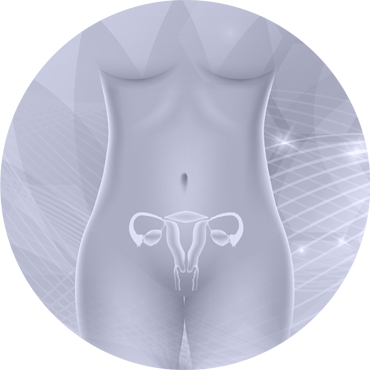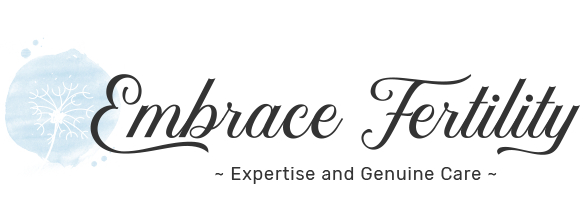Fertility Assistance
There are a number of reasons why a woman may be finding it difficult to conceive or carry to full term. It is our job at Embrace Fertility Adelaide to establish what the most likely cause is, and then plan our treatment accordingly. You can find some useful resources at Fertility Portal and below, we have listed some basic information regarding a few of the more common fertility issues:
Endometriosis
- Endometriosis is a condition where the lining of the womb grows outside the uterine cavity.
- Symptoms include period pain, but they can vary a lot (and can be asymptomatic).
- This can lead to difficulty in conceiving.
- The reason is thought to be because endometriotic tissue breaks down in response to the normal cyclical hormones from the menstrual cycle, which generates inflammation and an immune response, thus creating an environment in which eggs, sperm and embryos are not able to function normally.
- Treatment includes surgery to remove the lesions from the pelvic cavity and IVF to remove the eggs from the inflammatory pelvic environment.


Low Egg Numbers
- Anti-Mullerian Hormone blood test (‘The Egg Timer test’) can indicate how many eggs are in the ovaries. This provides information on the likely number of eggs available during IVF and the optimal dose of medication. It also helps determine the speed of treatment and the time frame if considering hi-tech fertility options.
- Women with low egg numbers can consider egg freezing to preserve fertility, although it doesn’t guarantee a pregnancy. Younger people undertaking chemotherapy, those with an inherited condition that lowers egg numbers, or those gender transitioning can freeze their eggs. Pregnancy rates are based on the age a woman freezes her eggs or embryos, not on the age she is when she uses her frozen eggs or embryos.
- Some medications are thought to improve outcomes for women undertaking IVF with a low ovarian reserve, but more research is needed to determine their value.
Dr Hull has investigated and published a paper to see if growth hormone improved IVF outcomes for women with a low ovarian reserve.
Polycystic Ovarian Syndrome/Disorders of Ovulation
- Polycystic ovarian syndrome (PCOS) is a common disorder in women that causes irregular menstrual cycles, hair growth, acne and many small cysts (follicles) in the ovaries.
- Women with PCOS have a high number of eggs in the ovaries but their hormones are set in a way that makes it difficult for the eggs to grow and be released.
- Treatment mainly involves taking oral tablets (Letrozole or Clomid) and/or injections of follicle-stimulating hormone (FSH) to release the eggs.
- Diet and exercise improve fertility and ovulation in women with PCOS.
- Many people with PCOS also have high insulin and sugar levels so treatment of these metabolic problems can improve fertility and reduce the risk of miscarriage.
- There are other endocrinological or genetic conditions that disrupt ovulation that can be treated.


Recurrent Implantation Failure & Recurrent Miscarriage
- Sometimes the reason the embryo hasn’t implanted is because it has too few or too many chromosomes in comparison to a normal, metabolically healthy embryo.
- Embryos can be genetically tested to see if this is the reason why pregnancy hasn’t occurred.
- Tests for recurrent implantation failure can also identify disorders in the lining of the womb which make it difficult for an embryo to implant.
- Several conditions can alter the way the placenta develops, leading to recurrent miscarriage.
- There are several treatments for recurrent implantation failure and recurrent miscarriage.
Male Factor
- There are many causes for a low sperm count which should be fully evaluated. Changes in lifestyle and taking male fertility vitamin supplements can improve male factor infertility.
- The technique of intracytoplasmic sperm injection has helped men with very low sperm counts conceive, and IUI and IVF can help men with a moderately low sperm count.
- Men who have had a longstanding vasectomy can conceive if sperm is surgically extracted from the epididymis or testes (a procedure which Dr Hull carries out).
- Men undertaking chemotherapy, with an unexpected low sperm count, having a vasectomy, gender transitioning, or who work in fly-in fly-out situations, can preserve their fertility by freezing sperm.
- Sperm DNA damage can be assessed by specialised tests. New sperm selection methods can identify sperm with less DNA damage for injection in ICSI to improve pregnancy outcomes.

Please do get in touch with our Adelaide rooms to book an appointment with a fertility specialist.
CONTACT US
Phone: 1300 848 470
Fax: 08 8362 4996
Support line: 0424 434 993
Email:
reception@embracefertility.org
ADDRESS
Teleconference
Please tell our reception staff if you prefer consultation via Zoom.
PRACTICE OFFICE HOURS
Mon & Wed: 9am – 8pm
Tue, Thur, Fri: 9am – 5pm
Nurses available
Bloods & scans by appointment:
Mon, Wed & Fri
7.30am – 9.30am
